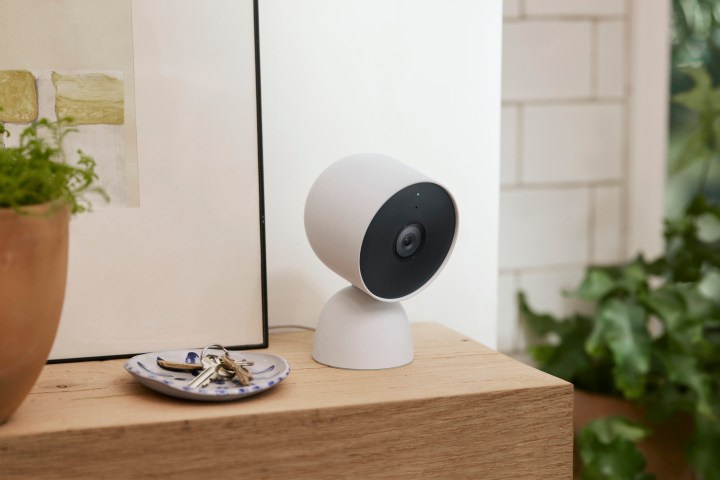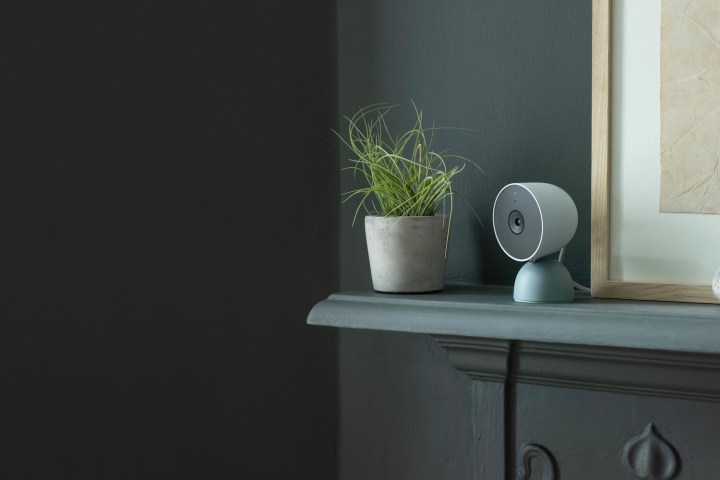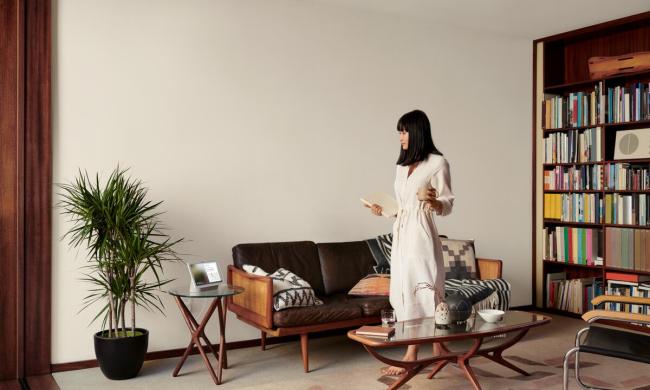It’s time to start thinking about smart security. Easier to install and control than ever, an intuitive smart security system will be built to handle the elements, alert you when motion triggers your cameras and sensors, allow you to store recorded footage in a lock-and-key cloud, and more. If you’ve been bouncing back and forth between multiple surveillance systems and can’t decide where to land, Google’s all-new suite of Nest hardware may be the answer you’ve been looking for.
The Google Nest Cam (battery), Nest Cam with Floodlight, and Nest Cam (wired) are the latest Nest products to hit the scene. Packed with more features and customization options than ever, we’ve broken down Google’s new family of security devices to help you understand exactly what all the big fuss is about and why you should buy.
Intelligent alerts that can distinguish dogs from cats
You’re at work, in the middle of a meeting, when you feel your phone vibrate in your pants pocket. The notification screen indicates it’s an alert from your smart security system. Nervous, you tap the notification, only to realize that the dangerous prowler your system picked up on was simply a neighborhood cat wandering across your front lawn.
With the latest Google Nest Cams, advanced object detection is built directly into the cameras themselves, as opposed to living somewhere in a Google server. This allows motion notifications for people, animals, and vehicles to be readily available from the get-go, with no paywall fee or additional subscriptions required. On-device machine learning and computer vision work together to allow new camera algorithms to analyze 2 times more pixels at 2 times the frame rate versus previous Nest Cams. This all translates to a significant improvement in the quality of events that are recorded, plus added privacy because the processing is done on-device.
Furthermore, Google’s latest cameras use machine learning to equip the devices to recognize the most familiar kinds of activity, with close to 40 million images used to train the Nest suite.
Battery power for wireless security

Having to work around your home’s existing electrical wiring can be a pain when it comes time to install hardware like lighting fixtures, doorbells, and cameras that require a hardwired connection. Those with existing Nest Cams may know the tribulations of integrating an outdoor floodlight cam into your smart home.
While the Nest Cam with Floodlight and Nest Cam Indoor will still require hardwiring, the reimagined Nest Cam (battery) and Nest Cam Doorbell will include rechargeable battery packs that will allow you to install your new cameras wherever you want, free of restrictions. Of course, if you’re looking to keep things wired, the battery is merely optional, and you can still hardwire or plug into an electrical outlet for constant power.
A seamless Google Nest ecosystem
Watching your sea of smart home products seamlessly interact is one of the most rewarding feelings in the world of consumer tech. While Google is no stranger to Internet-of-Things universes, a new family of Nest products means new ways to experience your smart home. Here’s an example of the latest kinds of hand-shaking:
Let’s say you’re running a Google Nest Hub in your living room. Your phone vibrates, so you reach down to see you have a notification from your Nest Doorbell. Oh, good. That package finally arrived. Without even opening your Google Home app on your phone, you can say “Hey Google, show me the doorbell.” In seconds, your Nest Hub will display a live feed directly from your Nest Doorbell, showing you your Amazon order on the stoop below the door.
For a little more integration, you can even set up your Google speakers and displays to emit a chime whenever someone rings your Nest Doorbell.
HDR video and expanded doorbell viewing
On-device HDR uses a series of snapped images (often taken mere milliseconds apart) to create one final picture that fills in color, brightness, and shadowing for ultimate detail. HDR is incredibly useful for security cameras as the improved final image can make it easier to see intruders and other subjects that may be lurking in hard-to-see areas of your property.
The latest Nest Cams and Nest Doorbell all include HDR for enhanced clarity and night modes, along with a taller field of view on the Nest Doorbell. The latter feature will allow you to view people standing at your door from head to toe thanks to its 4:3 aspect ratio, and will be able to show packages as close to 8 inches away from your door.
Customizable detection
Wouldn’t it be great if we could program our smart cameras to only raise a red flag when certain passersby are detected? With the Google Nest lineup, such a feature is now possible. It’s all made possible through the Google Home app, where you can create custom activity zones for your cameras, as well as familiar face detection.
With custom activity zones, your Nest products will only track motion in pre-drawn activity zones, with anything outside the pre-designated perimeter going unnoticed. This is especially convenient for pet owners that let their dogs out in the yard. Instead of pinging you with notifications every time the pooch runs by, your Nest gear will know that Fido is nothing to worry you about.
Additionally, you can set your cameras up for familiar face detection (feature not available in Illinois). If you’re away on vacation and asked your in-law to drop in to feed the cat, your Nest suite can be programmed to recognize family and friends as allowable familiars, meaning you’ll only be alerted when a face isn’t recognized (Nest Aware plan required for facial recognition features).
Free video cloud storage for three hours
Unlike most smart security competitors, your Nest Cams all come with free cloud storage. While you’ll only be getting up to three hours of video backup, that’s footage you can log in and remove if you want to restart your three-hour allotment.
If you want expanded cloud storage, you can always opt for a Nest Aware plan. Starting at $6/month, Nest Aware grants you familiar face recognition, the option to dial 911 directly from the Google Home app, and 30 full days of cloud storage. For $12/month, that 30 days gets leveled up to 60, along with the ability to record continuous video from a wired Nest Cam for up to 10 days.
Google’s safest Nest lineup yet
Keeping a tight hold on user data is key for any high-quality security package, a laurel that Google’s latest Nest lineup more than earns.
For starters, all of your captured footage is safely encrypted, both on-device and on the pathway from the camera to Google’s servers. Plus, an LED status light on the camera will indicate when your footage is being beamed to Google.
When it comes to your required Google Home account, all of your logins are also under lock and key. This includes two-step verification, suspicious activity monitoring, and security checkups for extra password protection.







